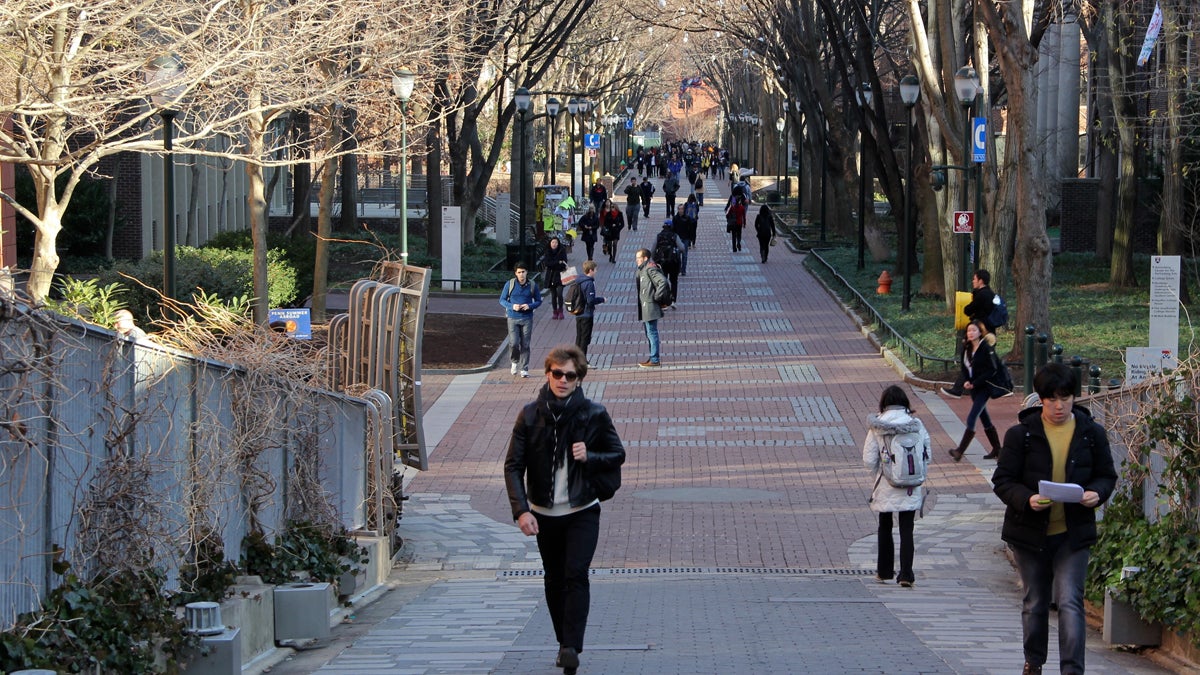More than a quarter of Penn women report sexual assault

Students walk through the University of Pennsylvania campus in Philadelphia. (NewsWorks file photo)
It’s been estimated that one in five women is sexually assaulted during college. But a new survey of more than two dozen American universities suggests that rate could be even higher.
At the University of Pennsylvania, 27 percent of female undergraduates said they had been sexually assaulted since arriving on campus. That’s 4 percentage points higher than the surveyed schools’ average, although still below that of fellow Ivies Dartmouth and Yale. Percentages ranged from a low of 13 at Caltech to a high of 30 at the University of Michigan and the University of Southern California.
On average, Ivy League schools posted slightly higher rates of assault of undergraduate women, although each school had different response rates, potentially making direct comparisons difficult. Princeton was the only Ivy League school not included in the survey.
The most commonly victimized group at Penn was freshman women, with 22.8 percent saying they had been assaulted in their first year of school. In comparison, just 5.5 percent of male undergraduates, 6.5 percent of female graduate students and 2.1 percent of male graduate students at Penn said they had ever been assaulted.
For the purposes of the survey, conducted on behalf of the American Association for Universities, sexual assault was defined as “nonconsensual penetration or sexual touching involving physical force or incapacitation.”
Sarah McMahon, a sexual violence researcher at Rutgers University, which was not evaluated, said given past research the outcome was not surprising, but is still disturbing.
“Any number is too high,” she said. “It’s dismaying to see now, across the country, that these numbers are being affirmed, and that this is something that is happening to such a large number of students.”
Surveys such as this, she added, are a good step, but they should be just the beginning.
“They need to accompanied by the development of an action plan,” McMahon said.
The most effective campus sexual violence-prevention programs include appropriate policies, ways of holding perpetrators accountable, as well as education and accessible resources, she said. In a shift over the last decade, many schools are increasingly turning to the “bystander” approach to teach students to help one another avoid trouble and get help if an assault occurs.
“Our peers and friends represent a really important untapped potential to help connect survivors with the resources that they need,” said McMahon.
The survey revealed that a majority of the Penn student body wasn’t sure where to turn if they or a friend needed help, despite multiple service centers and the Penn help line.
In an email to students and faculty, Penn President Amy Gutmann called the results “deeply troubling” and vowed to redouble efforts to prevent sexual violence on campus.
WHYY is your source for fact-based, in-depth journalism and information. As a nonprofit organization, we rely on financial support from readers like you. Please give today.

